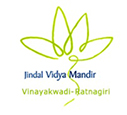Multiple Assessment
ACADEMICS

CHAIRPERSON
SANGITA JINDAL
Multiple assessment strategies relevant to particular learning outcomes are advised over the period of curriculum transaction. The subject teachers would determine the type and frequency of these. This would make assessment more comprehensive and provide schools/teachers flexibility to use multiple and diverse techniques to assess learners viz. observation, oral tests, individual or group work, class discussion, field-work, concept maps, graphic organizers, visual representation etc. Hence, the schools are given autonomy to use alternate modes of assessment as per the demand of the subject and the context towards addressing the goal of assessment for and as learning, such as, quizzes, project-work, Self and peer assessment, collaborative projects, experiments, classroom demonstrations, etc.
Caution must be observed that recording of such assessment is not cumbersome and can be easily translated into individual student scores. Thus, developing simple scoring criteria and rubrics becomes of equal importance when deciding to use a particular technique. In tune with the purpose of periodic assessment, i.e., to provide feedback to improve teaching and learning, it becomes of equal importance to use follow-up measures in case students are found deficient in proficiency of relevant learning outcomes.




